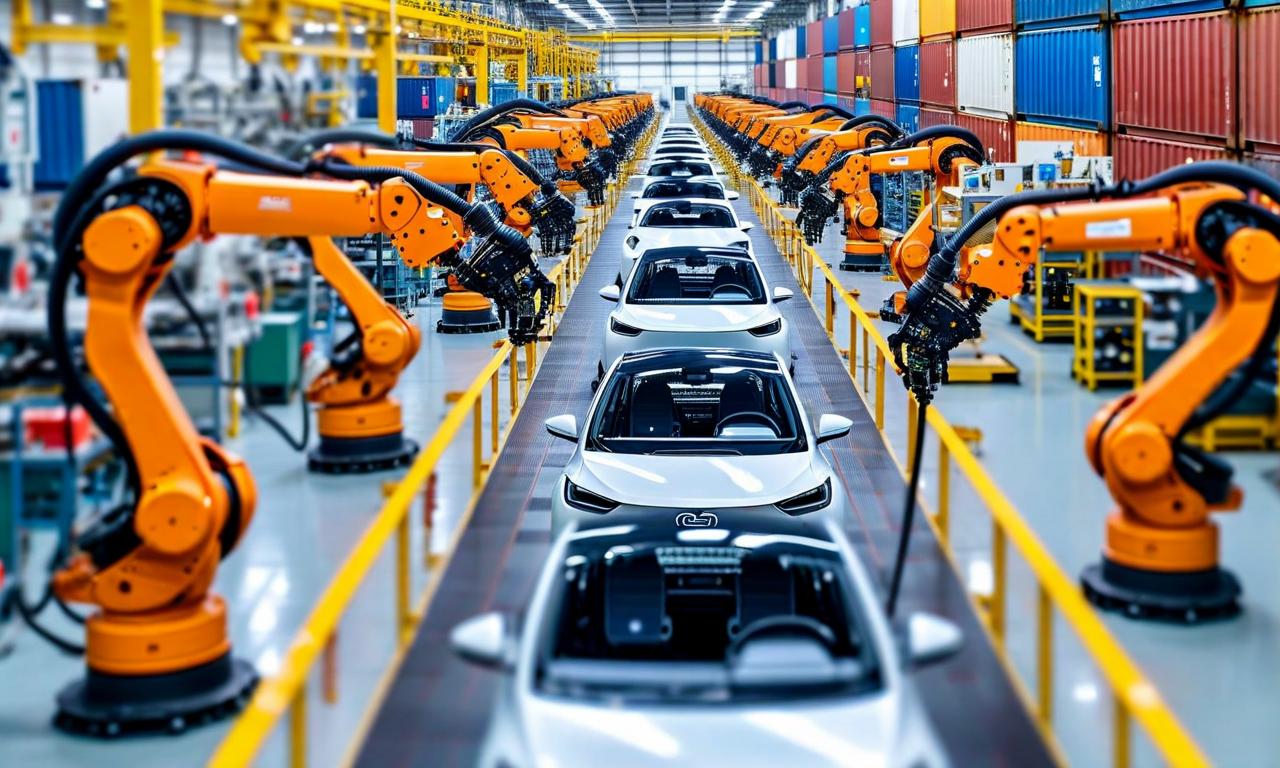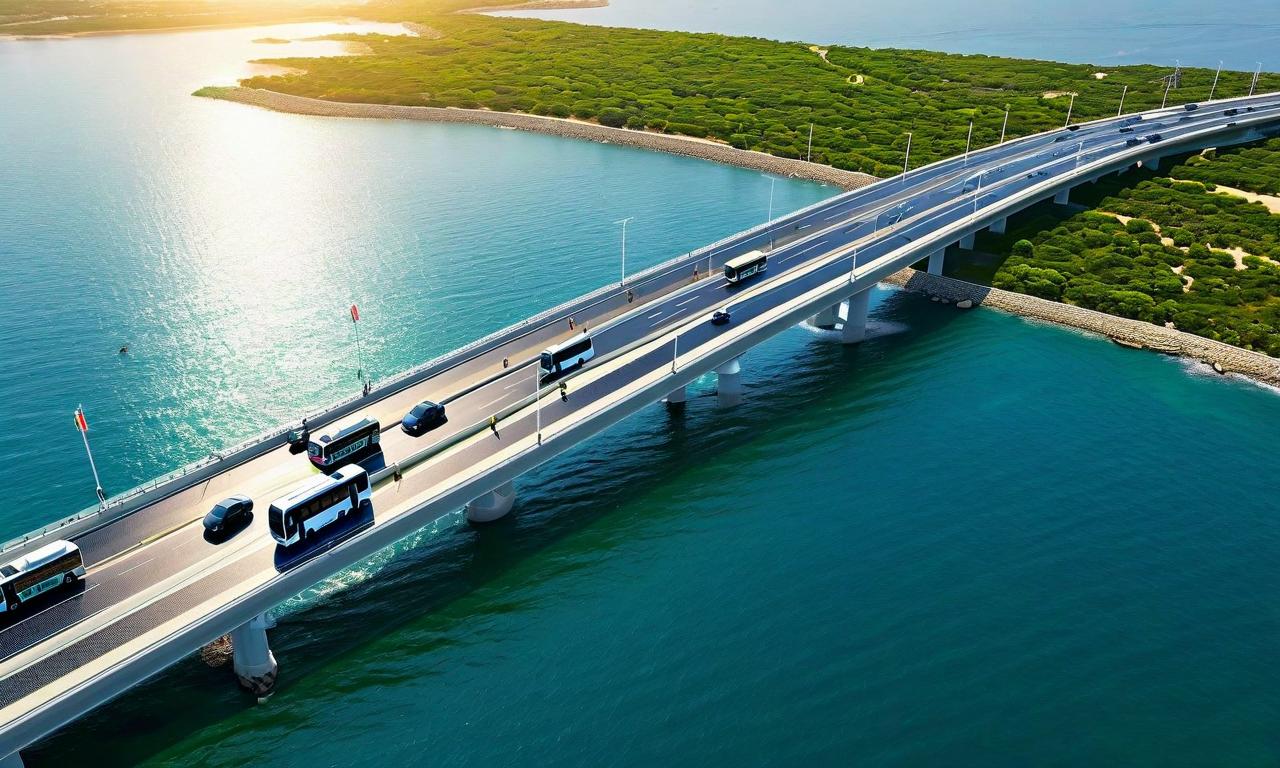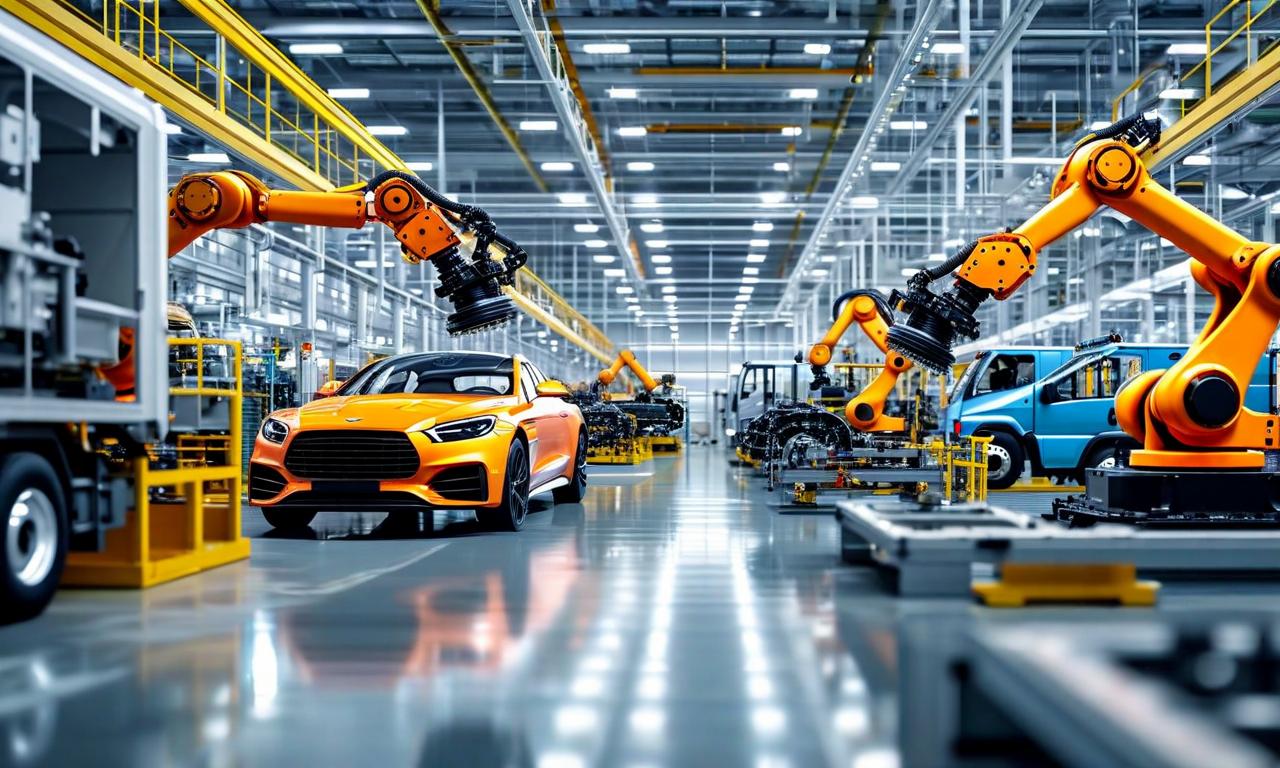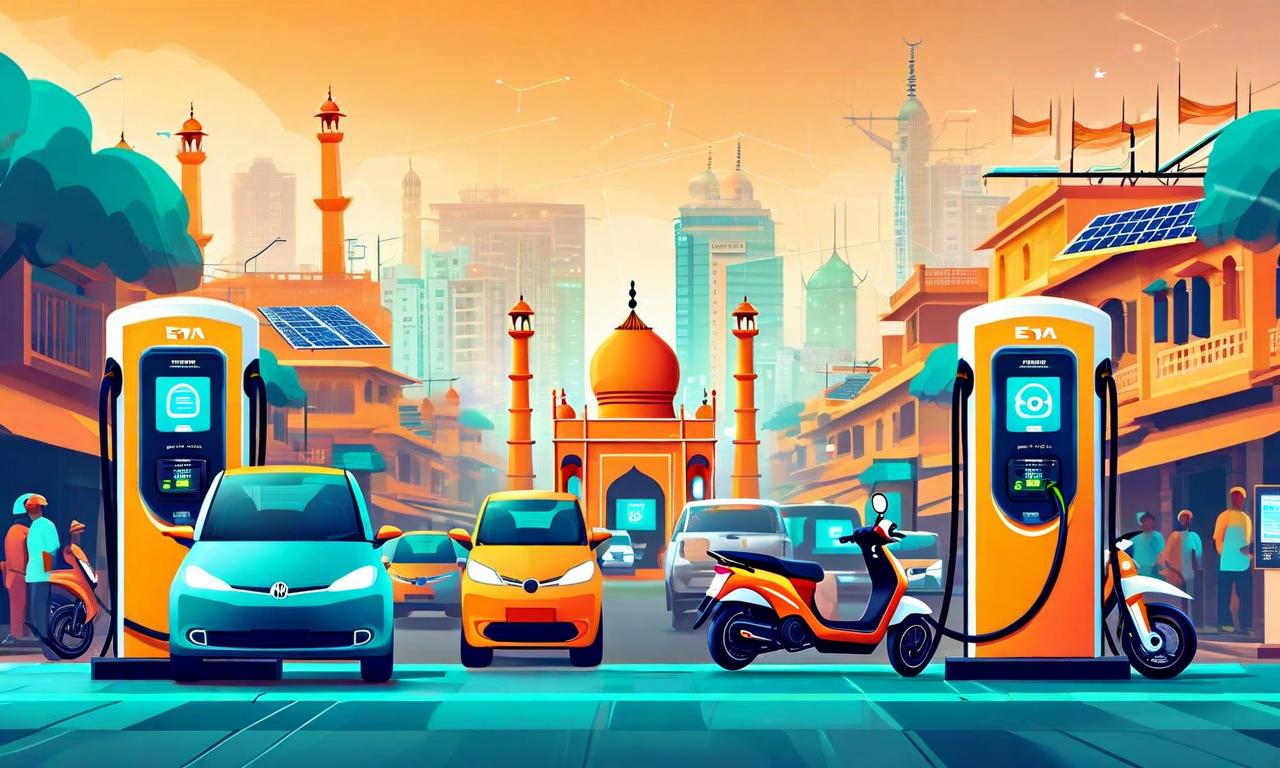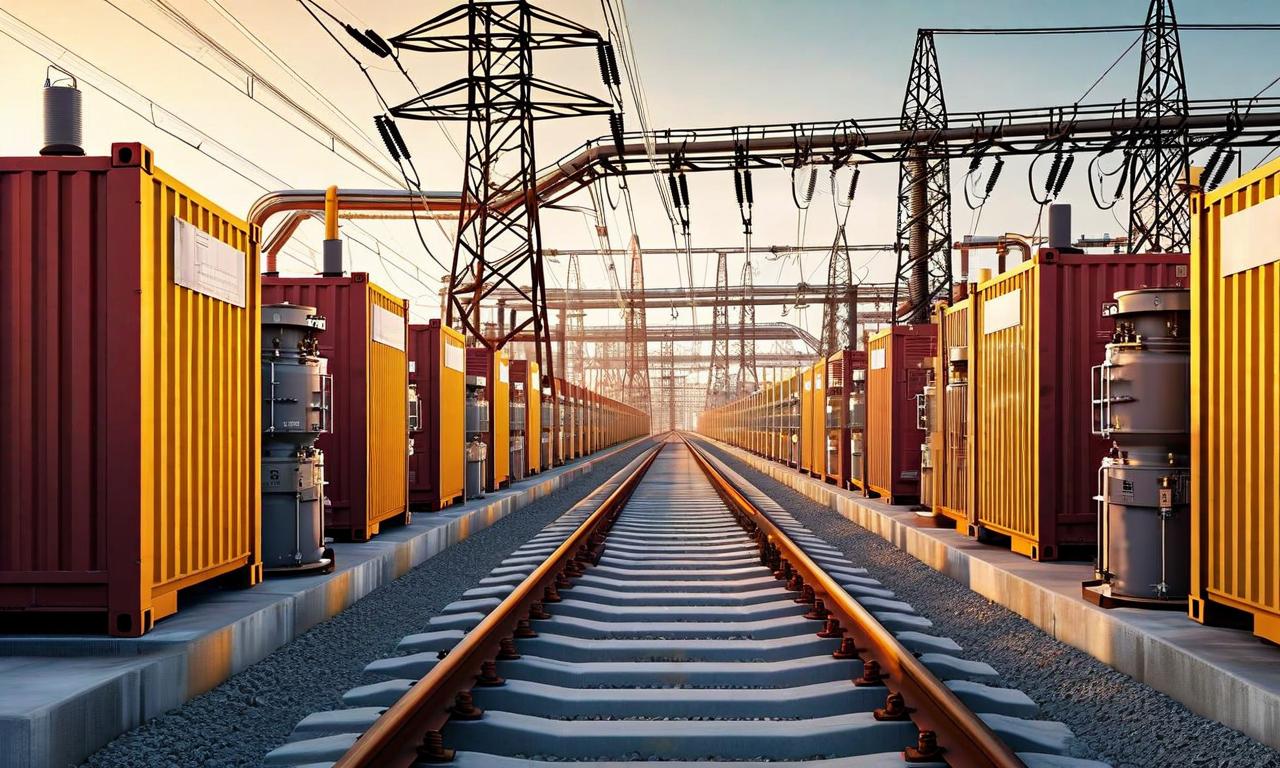Delhi Gears Up for Electric Revolution: 8,000 E-Buses and New EV Policy by 2026
Delhi Transport Minister Pankaj Singh announced plans to expand the city's electric bus fleet from 3,400 to 7,000-8,000 by February 2026, with an interim target of 6,000 buses by year-end. The city will also introduce a new EV Policy 2.0 by February, focusing on developing charging infrastructure in strategic locations and offering incentives for EV adoption. Delhi plans to collaborate with Oslo, Norway, under the 'Delhi-Oslo Smart Transport Initiative' to learn from their experience in developing charging networks.
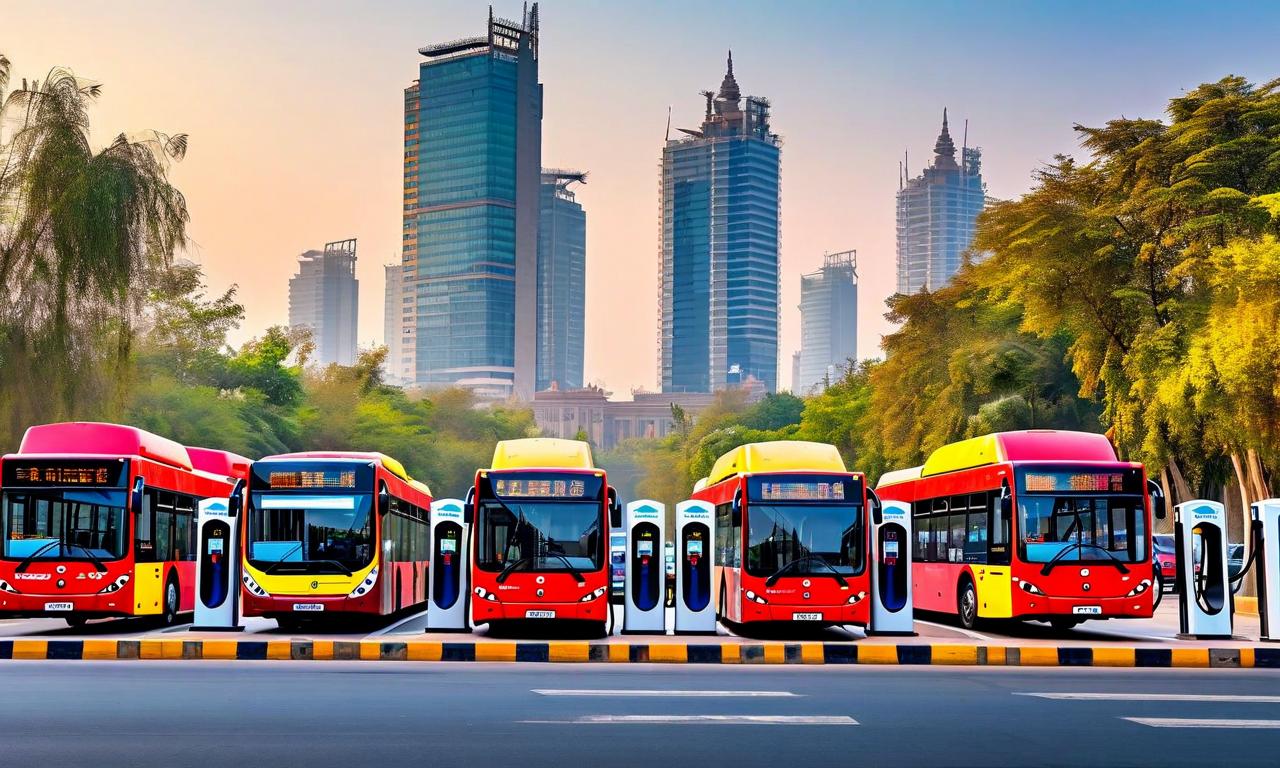
*this image is generated using AI for illustrative purposes only.
In a significant push towards sustainable urban transportation, Delhi is set to dramatically expand its electric bus fleet and introduce a comprehensive new electric vehicle (EV) policy. These ambitious plans, announced by Delhi Transport Minister Pankaj Singh, aim to position the national capital as a leader in eco-friendly public transport and EV infrastructure.
Electric Bus Fleet Expansion
Delhi's roads are poised for a green makeover with the Transport Minister's announcement of a massive increase in the city's electric bus fleet. The plan includes:
- Expanding the current fleet of 3,400 electric buses to 7,000-8,000 by February 2026
- An interim target of 6,000 electric buses by the end of this year
- Introduction of Devi buses for last-mile connectivity
This substantial growth in electric public transport is expected to significantly reduce the city's carbon footprint and improve air quality.
EV Policy 2.0: Charging Ahead
To support the growing number of electric vehicles, Delhi is preparing to unveil its new EV Policy 2.0 by February. The policy focuses on:
- Developing charging infrastructure in strategic locations:
- Housing societies
- Under flyovers
- Vacant land in outer Delhi
- Collaboration with Resident Welfare Associations
- Implementation of Public-Private Partnership models
The comprehensive policy will also address key aspects such as:
- Vehicle scrapping initiatives
- Road tax considerations
- Incentives for EV adoption
International Collaboration: Learning from Oslo
In a bid to leverage global expertise, Delhi plans to collaborate with Oslo, Norway, under the proposed 'Delhi-Oslo Smart Transport Initiative'. This partnership aims to:
- Learn from Norway's extensive experience in developing charging networks
- Adapt successful strategies to Delhi's unique urban landscape
Looking Ahead
The ambitious plans outlined by Minister Singh demonstrate Delhi's commitment to sustainable urban development and combating air pollution. As the city moves forward with these initiatives, residents can expect to see a greener, cleaner, and more efficient public transportation system in the coming years.
The success of these plans could potentially set a benchmark for other Indian cities, paving the way for a nationwide shift towards electric mobility and sustainable urban transport solutions.
